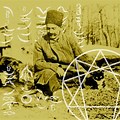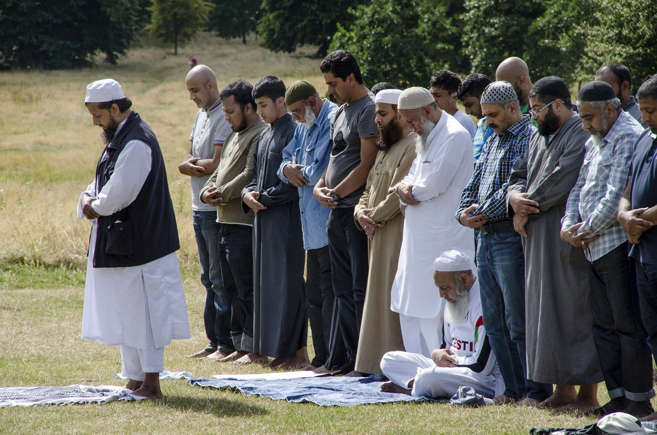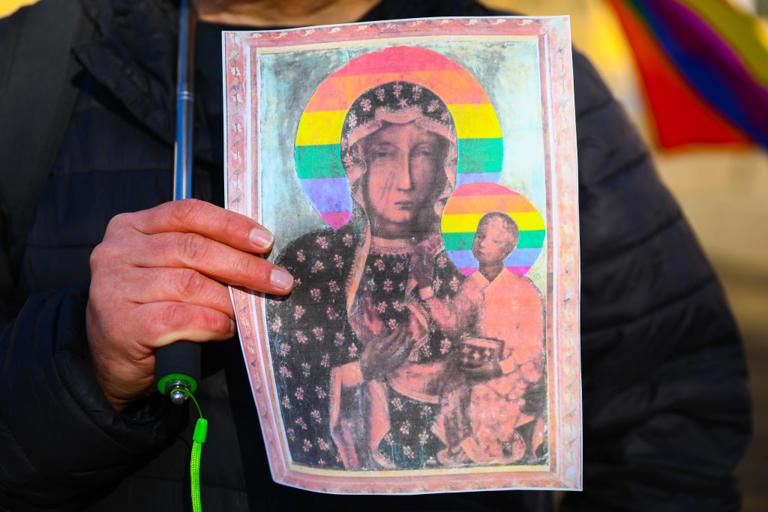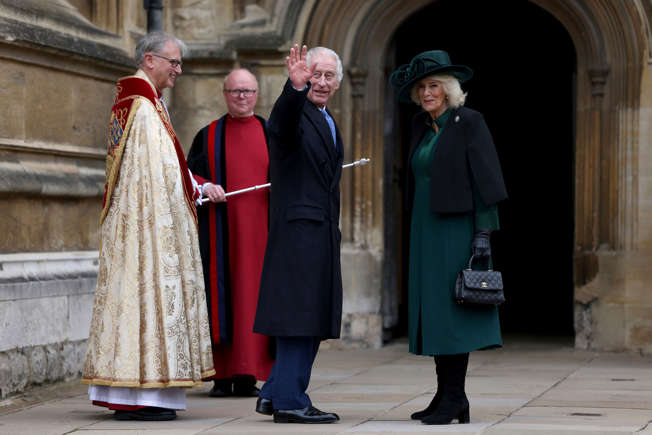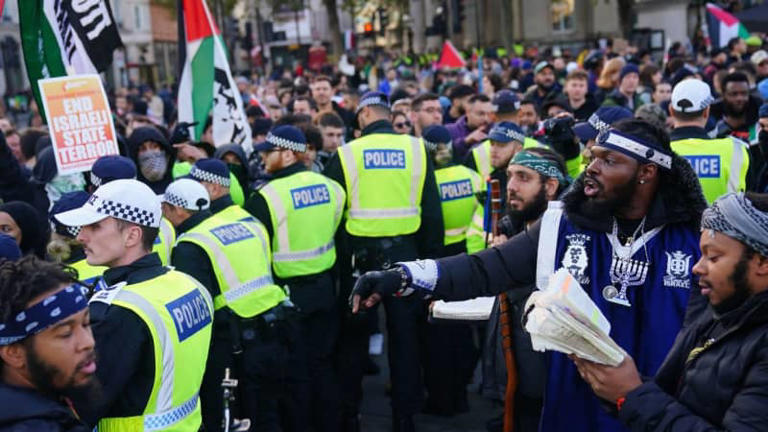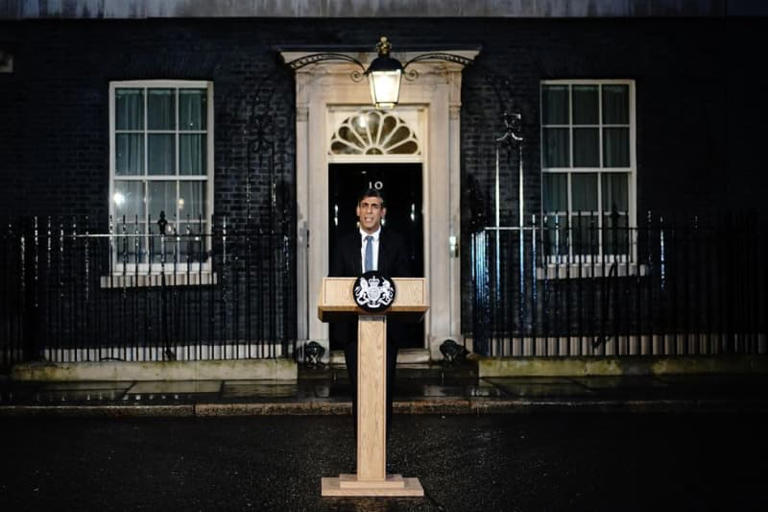Muslim Council Demands Investigation Into Islamophobia in the Conservative Party









Muslim Council Demands Investigation Into Islamophobia in the Conservative Party
After a torrid month for the Tories, the UK’s leading Muslim organization has demanded an investigation into the Conservative Party after allegations of Islamophobia have been thrown from all angles.
- Story by Oscar Davies
What does the Bible say about homosexuality? Well, for starters, Jesus wasn’t a homophobe








What does the Bible say about homosexuality? Well, for starters, Jesus wasn’t a homophobe
“What does the Bible say about LGBT issues?” you may have asked yourself recently: particularly due to an ongoing right-wing trend to equate Christianity with heterosexuality, and the LGBT community with satanism.
Well, firstly it’s important to note that when Pope Francis was asked about his views on homosexuality in February 2023, he reportedly replied: “This [laws around the world criminalising LGBT people] is not right.
“Persons with homosexual tendencies are children of God. God loves them. God accompanies them … condemning a person like this is a sin. Criminalising people with homosexual tendencies is an injustice.”
And in November 2023, Pope Francis stated that trans people may be baptised and act as godparents or witnesses to marriage just like any other adult. The pontiff also made global headlines in December 2023 when he announced that people in same-sex relationships could be blessed by the Catholic Church.
This isn’t the first time Pope Francis has shown himself to be a progressive leader when it comes to, among other things, LGBT Catholics.
It’s a stance that has drawn the ire of some high-ranking bishops and ordinary Catholics, both on the African continent and elsewhere in the world.
Some of these Catholics may argue that Pope Francis’s approach to LGBT matters is a misinterpretation of Scripture (or the Bible). But is it?
Scripture is particularly important for Christians. When church leaders refer to “the Bible” or “the Scriptures”, they usually mean “the Bible as we understand it through our theological doctrines”. The Bible is always interpreted by our churches through their particular theological lenses.
As a biblical scholar, I would suggest that church leaders who use their cultures and theology to exclude homosexuals don’t read Scripture carefully. Instead, they allow their patriarchal fears to distort it, seeking to find in the Bible proof-texts that will support attitudes of exclusion.
There are several instances in the Bible that underscore my point. Here’s what the Bible says about LGBT issues:
Love of God and neighbour
Mark’s Gospel, found in the New Testament, records that Jesus entered the Jerusalem temple on three occasions. First, he visited briefly, and “looked around at everything” (11:11).
On the second visit he acted, driving “out those who were buying and selling in the temple, and overturned the tables of the money changers and the seats of those who were selling doves” (11:15). Jesus specifically targeted those who exploited the poorest of the people coming to the temple.
On his third visit, Jesus spent considerable time in the temple itself (11:27-13:2). He met the full array of temple leadership, including chief priests, teachers of the law and elders. Each of these leadership sectors used their interpretation of Scripture to exclude rather than to include.
The “ordinary people” (11:32 and 12:12) recognised that Jesus proclaimed a gospel of inclusion. They eagerly embraced him as he walked through the temple.
In Mark 12:24, Jesus addresses the Sadducees, who were the traditional high priests of ancient Israel and played an important role in the temple. Among those who confronted Jesus, they represented the group that held to a conservative theological position and used their interpretation of the Scripture to exclude. Jesus said to them: “Is this not the reason you are mistaken, that you do not understand the Scriptures or the power of God?”
Jesus recognised that they chose to interpret Scripture in a way that prevented it from being understood in non-traditional ways. Thus they limited God’s power to be different from traditional understandings of him. Jesus was saying God refused to be the exclusive property of the Sadducees. The ordinary people who followed Jesus understood that he represented a different understanding of God.
This message of inclusion becomes even clearer when Jesus is later confronted by a single scribe (12:28). In answer to the scribe’s question on the most important laws, Jesus summarised the theological ethic of his gospel: love of God and love of neighbour (12:29-31).
Inclusion, not exclusion
Those who would exclude homosexuals from God’s kingdom choose to ignore Jesus, turning instead to the Old Testament – most particularly to Genesis 19, the destruction of the cities of Sodom and Gomorrah. Their interpretation of the story is that it is about homosexuality. It isn’t. It relates to hospitality.
The story begins in Genesis 18 when three visitors (God and two angels, appearing as “men”) came before Abraham, a Hebrew patriarch. What did Abraham and his wife Sarah do? They offered hospitality.
The two angels then left Abraham and the Lord and travelled into Sodom (19:1) where they met Lot, Abraham’s nephew. What did Lot do? He offered hospitality. The two incidents of hospitality are explained in exactly the same language.
The “men of Sodom” (19:4), as the Bible describes them, didn’t offer the same hospitality to these angels in disguise. Instead they sought to humiliate them (and Lot (19:9)) by threatening to rape them. We know they were heterosexual because Lot, in attempting to protect himself and his guests, offered his virgin daughters to them (19:8).
Heterosexual rape of men by men is a common act of humiliation. This is an extreme form of inhospitality. The story contrasts extreme hospitality (Abraham and Lot) with the extreme inhospitality of the men of Sodom. It is a story of inclusion, not exclusion. Abraham and Lot included the strangers; the men of Sodom excluded them.
Clothed in Christ
When confronted by the inclusive gospel of Jesus and a careful reading of the story of Sodom as one about hospitality, those who disavow Pope Francis’s approach will likely jump to other Scriptures. Why? Because they have a patriarchal agenda and are looking for any Scripture that might support their position.
But the other Scriptures they use also require careful reading. Leviticus 18:22 and 20:13, for example, are not about “homosexuality” as we now understand it – as the caring, loving and sexual relationship between people of the same sex. These texts are about relationships that cross boundaries of purity (between clean and unclean) and ethnicity (Israelite and Canaanite).
In Galatians 3:28 in the New Testament, Paul the apostle yearns for a Christian community where “there is no longer Jew or Greek, there is no longer slave or free, there is no longer male and female; for all of you are one in Christ Jesus.”
Paul built his theological argument on the Jew-Greek distinction, but then extended it to the slave-free distinction and the male-female distinction. Christians – no matter which church they belong to – should follow Paul and extend it to the heterosexual-homosexual distinction.
We are all “clothed in Christ” (3:27): God only sees Christ, not our different sexualities.
- Story by Will Stroude : Pink News:
King Charles attends Easter service, providing a glimpse of the monarch after cancer diagnosis







King Charles attends Easter service, providing a glimpse of the monarch after cancer diagnosis
King Charles III joined the queen and other members of the royal family for an Easter service at Windsor Castle on Sunday in what will be his most significant public appearance since he was diagnosed with cancer last month.
The monarch offered a cheery wave as he walked into St. George's Chapel for a service expected to last about an hour.
The appearance of the 75-year-old king is seen as an effort to reassure the public after Charles stepped back from public duties following an announcement by Buckingham Palace in early February that he was undergoing treatment for an unspecified type of cancer. Though he has been working behind the palace walls, his emergence in public for a royal fixture like the Easter service is seen as a positive sign.
The service itself will be smaller than usual as Kate, the Princess of Wales, is also being treated for cancer and has paused public duties. The princess, her husband Prince William and their children won’t attend the service.
Kate shock’s announcement that she, too, had cancer was made on March 22, after weeks of speculation about her health and whereabouts following major abdominal surgery in February.
While the Easter service takes place in a chapel on the grounds of Windsor Castle, the news media will be able to observe the arrival of Charles and Queen Camilla.
We must stand up to religious extremism in the UK before it tears us apart,’ writes Frederick Chedam







We must stand up to religious extremism in the UK before it tears us apart,’ writes Frederick Chedam
Conduct a Google search on combatting extremism and the results will overwhelmingly display concerns over far-right activity, the extent of which has proved negligible while a cursory glance at the long list of terrorist attacks shows the causes overwhelmingly to be inspired by religious extremism. That religious extremism is the platform that launches terrorism is a statistical reality, yet one that many shy away from acknowledging openly.
Consider the recent London protests in support of Hamas. Aside from humanitarian concern, one might expect events in Gaza to have little impact on everyday life in the UK but the reality is starkly different. Thousands flood the streets, their voices and slogans timidly policed by a Metropolitan Police force seemingly paralyzed by the fear of losing control over the situation. Amidst these gatherings, a disturbing trend emerges: a rise in anti-Semitic attacks and an atmosphere where Jewish individuals feel unwelcome in their own capital.
Former Home Secretary Suella Braverman aptly labelled these gatherings as "hate marches," emblematic of a broader surge in religious extremism across the UK. Yet, extremism doesn't solely manifest in these high-profile events.
The failure to define and confront extremism stems from a broader reluctance to draw clear lines. While laws targeting terrorism and hate crimes exist, extremism remains undefined, providing a convenient cloak for those who exploit societal tolerance to advance their agendas. Efforts to establish legal definitions have been met with resistance, often framed as encroachments on free speech or dismissed as hollow gestures.
Legal precedents, such as the Begg v BBC defamation case, may have made some progress and offer an insight into when extremism could cross into legal sanction. The BBC successfully defended its use of the term ‘extremism’ in news reporting in a defamation case brought against it. Yet, the ruling remains isolated, overshadowed by broader legal and academic critiques. The result? Begg v BBC is an obscure defamation case law in a legal landscape riddled with loopholes, allowing hateful ideologies to propagate unchecked.
Addressing this crisis demands clarity and courage. The absence of a robust definition of extremism only emboldens those who seek to sow division and discord. While the notion of multiculturalism is laudable over-tolerance has provided a breeding ground for grievances imported from distant shores, reshaping the landscape of free speech and protest into something unrecognizable.
There's an urgent need for a coherent definition of extremism that guides behaviour across all spheres of public discourse. If academia and policymakers are unable or reluctant to provide a definition, it falls upon lawmakers to have the courage to impose one. The task is daunting, particularly in a political climate where even broaching the subject risks accusations of Islamophobia or cultural insensitivity. It will take a Government with courage to overcome some of the institutional thinking that has come to dominate the debate.
Articles-Latest
- Koran burning conviction sparks fury as blasphemy law 'returns to UK'
- Robert Francis Prevost - Pope Leo XIV
- Pope Francis' death follows recent health challenges. Here's what we know about how he died.
- Easter April 2025 - international Celebrations
- The Rule of the twelve psalms -Worthy is the Lamb
- Religion in Africa Before Christianity and Islam
- 6 The Origin of Yahweh
- Dumo Di Milano
- What Did the Crow Tribe Believe In: Discover The Beliefs!
- 7 Reasons Historic Christianity Rejects the Book of Enoch
- 8 Breathtaking Mountain Monasteries Around the World
- Ethiopian Bible is oldest and most complete on earth
- Muhammad Muhammad was a prophet and founder of Islam.
- World Day of the Poor – SVP Christmas Campaign 2024
- Pope Francis to open 5 sacred portals on Christmas Eve — for a ritual that’s never been done before
- The 144,000 in Revelation
- Over 73 dead bodies 'used for meditation', 600 crocs in a pond, found in two Thai temples
- Occultism: Western Occult Tradition
- What is a Mudra
- Blood Sacrifices: Ancient Rituals of Life and Death
Articles-Most Read
- Home
- Let There Be Light
- Plants that feel and Speak
- The Singing Forest
- The Singing Forest-2
- Introduction
- Meditation
- Using Essential Oils for Spiritual Connection
- Heaven Scent
- Plants that Feel and Speak-2
- Purification
- Making the Spiritual Connection
- Anointing
- Essential Oils: The unseen Energies
- The Sanctity of Plants
- The Aroma Of Worship-Foreward
- The Aroma Of Worship - Introduction
- Methods Of Use
- Spiritual Blending
- Handling and Storage




